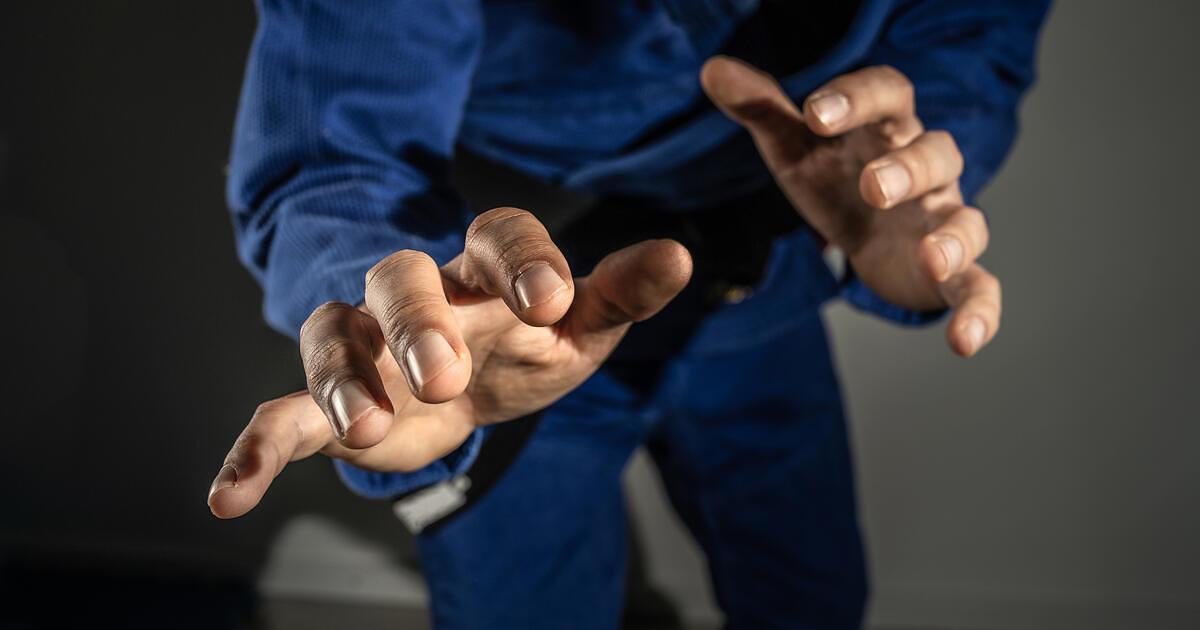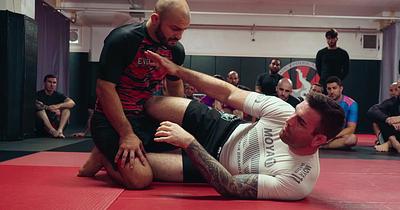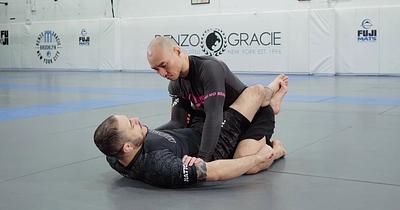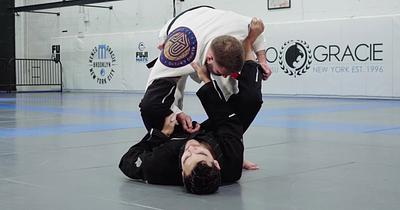Discover the "Gentle Art" of Brazilian Jiu-Jitsu and Its Many Benefits
by Team Digitsu
Updated: April 03, 2024

You might have heard of Brazilian Jiu-jitsu or “BJJ”, but did you know that it can positively impact the life of anyone that puts in the time to train?
Translated from Japanese as “the gentle art”, Brazilian jiu-jitsu is a self-defense method that can be effectively implemented by any type of person regardless of age or physical ability against a larger and stronger opponent. It is also widely recognized as the most effective martial art system. Brazilian Jiu-Jitsu can trace its origins through Judo, but BJJ has its own unique history. BJJ experienced a boom in popularity after the televised single-elimination fights between Royce Gracie (nephew of BJJ’s founder Carlos Gracie) and other martial artists demonstrated the effectiveness of the sport where your most dominant position involves being on your back with the other person in your “guard”. Over the last two decades, the sport has been further popularized by mixed martial arts competitions like the UFC.
And no, it’s not just for professionals! Martial arts, children, fitness, hobby and sports enthusiasts the world-over are recognizing the benefits. In the US alone, the number of academies has grown from just around 300 to over 1,200 since 2012.
This massive rise in popularity begs the question – what makes BJJ so special? Let’s start by looking at 5 of the sport’s key characteristics. BJJ is…
- Challenging: Not only is BJJ physically challenging, but participants reported how mentally challenging it is referring to it as “human chess” or “an endless string of possible combinations”
- Enjoyable: Often described as “fun” or “addictive”, there is a playful quality to BJJ where you engage in almost childlike, primal movements such as rolling on the ground, “play fighting”, and the cathartic process of physically expressing your emotion such as frustration and anger with a relative sense of freedom from consequences.
- Physical: BJJ is a physically demanding sport requiring the development of anaerobic capacity, speed, power, flexibility, coordination, muscular endurance, and balance.
- Practical: The principles of BJJ are rooted in the utilization of technique instead of strength and power to achieve a certain result, meaning that moves optimize for efficiency and conversation of energy. The result? Anyone regardless of their size can effectively leverage the techniques to (at a minimum) defend themselves.
- Social: What makes BJJ unique is the close-knit nature of the relationships that develop, likely due to the physical closeness from the grappling component of training and participatory and peer-to-peer learning aspect of the sport.
Now that we understand a little bit more about what makes BJJ so unique, let’s dive into what you can expect when you step on the mats.
The benefits of community: Although you compete in BJJ as an individual, all preparation requires regular training with your fellow practitioners or training partners. Participating in group sports can lead to a strong sense of community, higher mental health and life satisfaction scores, and collective learning. BJJ culture in particular is characterized by mutual learning (peer-to-peer learning) as practitioners are often “seeking out advice from others” to problem solve situations that arise during training.
Stress management and mood management: We’ve all heard about how martial arts reduce stress and can have a therapeutic/trauma-assuaging quality. When it comes to BJJ, practitioners have commented on the ability of BJJ to help them channel, cope or detach from negative emotions such as fear, stress, anxiety, etc. Conversely, BJJ seems to have to ability to make people feel better regardless of their prior emotional state. In a recent survey, happiness ranked as the number one rated feeling of online survey respondents after training regardless of how the training went.
Better brain and body: Not only can training BJJ lead to a healthier lifestyle (like many community or group-based activities), but BJJ may improve cognitive function due to the complexity demands of the activity.
Feel good hormones, unlocked: The body-to-body contact during training releases oxytocin and brain derived neurotrophic factor, which can lead to positive feelings and increased energy and focus.
Optimizing how we think and feel: While anyone will tell you that getting good at BJJ doesn’t come easy, the rewards experienced by those who put in the time on the mats are undisputable. Some of the most meaningful impacts are to our overall well-being. Regular practitioners report:
- Improved critical thinking: Through the constant mental stimulation required of making decisions under pressure, practitioners feel that they become better at solving problems. Some also reported feeling of mental clarity that aids in decision making and strategic thinking.
- Increased self-knowledge: Under the mental and physical pressures of training, BJJ offers students the visibility into their gut reactions, coping mechanisms, and other aspects of their personality. Through this introspection they report being able to recognize personal limitations (in their abilities and performance) and focus on individual strengths.
- Better adaptability: Building on the self-knowledge piece, BJJ not only helps you know yourself better – but it helps you adapt better. By learning to “go with the flow” and adjust as needed when facing challenging situations on the mat instead of trying to afront with strength, practitioners seem to be able to adapt better to external stressors and situations off the mat.
- Higher self-confidence: Learning and effectively implementing techniques makes BJJ practitioners feel empowered, which results in feelings of accomplishment. Many feel that their performance and mindset on the mat led to them feeling more confident about themselves in general, regardless of their rank or experience level.
- Improved resilience and growth mindset: A growth mindset, where practitioners focus on progress and growth rather than individual performances or mistakes, is common among BJJ practitioners. Because they understand that the road to mastery is a long one and the only way to learn is through trial and error, they often (consciously or subconsciously) seek out challenges and growth opportunities and are motivated by the physical and mental challenges of training, as well as learning new techniques.
Competing in BJJ might not be for everyone, but competition has its own importance and additional benefits.


